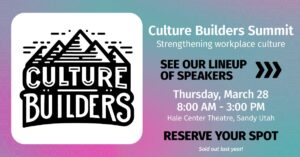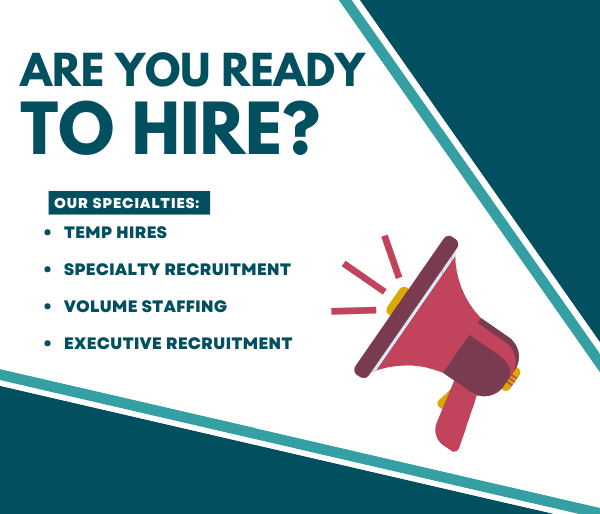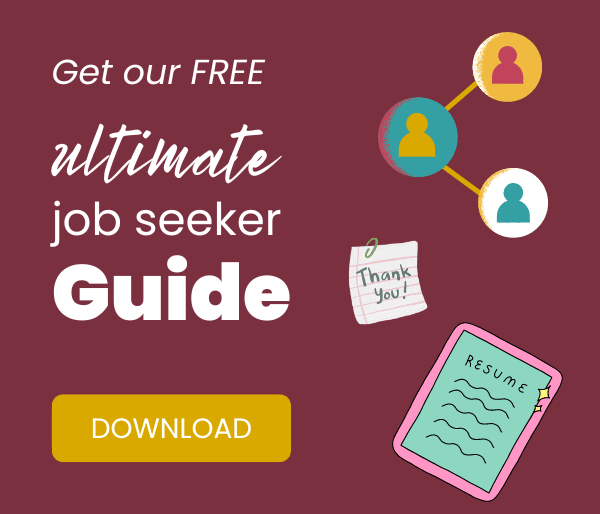“So, why’d you leave your last job?” This question can feel a little uncomfortable if you’re not prepared for it. With so much hanging on every interview question, you want to nail every question that you can. For that reason, is there a best answer for reason for job change in an interview?
This article will deep dive into the different topics surrounding how to explain changing jobs in an interview. Here’s what you need to know to be able to answer that question with ease in your upcoming interview.
Best Answer for Reason for Job Change in Interview
Below are the essential questions and answers for talking about changing jobs in an interview:
What Is a Good Reason for Leaving a Job in an Interview?
- You want to work for a large company
- You are changing your career
- Your temporary employment/contract expired
- Your commute was too long & took up too much time outside of work
- You are seeking career growth into a senior position
- You are looking for a chance to develop your professional skillset in new areas
- You are looking for a healthier work-life balance
This list is not all inclusive, but it includes the expert-approved list of the top reasons to give for changing jobs. If your reason extends beyond this list, be sure to review the rest of this article to ensure that your reason is appropriate to bring up in an interview.
What is the Best Answer for Reason for Job change in an Interview?
While the best answer might vary from person to person, stating career development as your reason for changing jobs is a strong response. This can take form in a number of ways, including: leadership opportunities, the development of new skills, and a chance for growth. As you frame your job change in your overall career path, it helps employers understand that you are a rational thinker who is focused on the bigger picture. This is a great sign for employers.

With that being said, you shouldn’t lie in your interview. If you changed jobs for another reason, be honest. However, it’s best not to respond with negativity. As a general rule, you should always try to have a positive perspective in interviews, so avoid negative responses. Find a way to spin a negative reason into a positive one.
How Do I Explain Leaving a Job Quickly?
If you left a job quickly, it may seem difficult to explain why your tenure was so short. The key to responding to this question is this: honesty. But more specifically: honesty with a positive twist. As was mentioned above, explain how this decision fits into your overall career path and what direction you’d like your career to take. This shifts an employer’s mindset from apprehension to understanding.
Is There a Most Common Reason for Leaving a Job?
Why do most people leave their jobs? It’s common to wonder why other people left their jobs. A number of reputable sources have answered this question. Here are the most common reasons for leaving a job according to Harvard Business Review:
- They don’t like their boss
- They don’t see opportunities for growth or promotion
- They are offered a better job
Flexjobs has also shared their statistic-supported list of reasons why people quit:
- Toxic company culture (62%)
- Low salary (59%)
- Poor management (56%)
- Lack of healthy work-life balance (49%)
- No remote work options (43%)
As time progresses, the specifics of this list will likely evolve and change. However, one principle will stay the same: Employees not being treated how they want to be treated will always be a top reason for them ditching an organization.
Example Answers to Explain Job Change
When trying to figure out how to word your response to this interview question, it’s beneficial to have a guide to work from. Check out the templates and examples below to get a better idea of how to respond when asked why you left your last job.
Templates to Explain Your Job Change
Here are a handful of templates that you can use as a starting point for explaining your job change:
1. Developing Skills
Over the past two years at [Company X], I’ve developed so many skills in [Skill X]. These have benefitted my career so much and I am looking for similar opportunities to grow my skillset elsewhere. I noticed this opportunity is focused in [Skill Y] and [Skill Z], which I think would be a great fit for me based on my previous background in [Skill X].
2. Shorter Commute
While I loved my previous position and the opportunities that it provided me, I’m seeking a new position that is closer to home. The location of my past job required an extensive commute, which made it hard to balance work and my personal life. I noticed this job had a shorter commute, making it a more realistic option for me.
3. Career Advancement
My time at [Company X] taught me a great deal about [Profession X]. I’ve been able to grow as an employee, individual, and even leader. Unfortunately, there were no growth opportunities available in my department. For that reason, I’m looking at new opportunities to take on a senior position with more responsibilities and the chance for additional growth.
4. Larger Company
I loved my time working for [Company X]. With that being said, I am now looking for opportunities at larger organizations with more resources and training available for employees. [Company X] taught me a great deal about [Profession X] and I’d love to keep growing in that field at a larger company.
5. Temp/Contract Expired
I was employed at [Company X] as a temporary employee and my contract expired. At that time, there were no full-time positions available in my department. For that reason, I’m looking at similar opportunities to continue developing my skillset in [Profession X].
6. Career Change
While my time at [Company X] was a great opportunity and taught me so much, I’m looking to shift my career in a new direction. I think [Profession X] will be a much better fit for my skillset and this opportunity would be a great chance to develop myself and provide a greater return for my employer.
7. Work-Life Balance
[Company X] taught me an incredible amount about [Profession X] and allowed me to grow in so many ways. At this time in my career, I’m looking for an opportunity that will allow me to better balance work and my personal life. This position at [Company X] seemed like an excellent opportunity that promotes that balance.
Spinning Popular Negative Reasons for Leaving a Job
Giving a negative response, although honest, won’t fare well with a potential employer. Try these substitutes in place of badmouthing a previous employer, job, or company:
- I hated my boss -> I’m seeking positive mentors to further my career
- I didn’t get along with my co-workers -> I’m looking for a healthy company culture to promote my professional development
- The hours were too long -> I’d love to work for a company that actively promotes work-life balance
- I never got training or development opportunities -> I’m looking for the opportunity to further my professional development
- I couldn’t get a promotion -> Given my experience, I’m looking for opportunities to advance my career in a senior position
- My job was boring -> I’m seeking a new opportunity to develop my career and progress as a professional
- They wouldn’t let me work from home -> In an effort to promote my work-life balance, I’m looking for positions that allow and encourage remote work
Advice for Explaining Why You Are Changing Jobs
As you prepare for your upcoming interview, here are some general rules that you should be sure to follow:

What You Should Do:
- Bring up Your Career Growth: Talk about how the decision was based on career growth. This is what an employer will be looking for when they ask this question.
- Be Positive: Keep your response positive. Employers want employees who positively contribute to company culture. A negative explanation for changing jobs could be a signal of someone who will disrupt a healthy company culture.
- Practice Your Response: Before going into the interview, you should prepare what you will say. If you run through your response a few times, delivering the answer will come with ease.
What You Shouldn’t Do:
- Badmouth Your Previous Employer: Never talk bad in an interview, whether about your company, boss, or co-workers. This doesn’t add anything to your value as an employee. In fact, it could detract from your value. If an employer knows that you will be critical in an interview, they might not want to employ you out of fear that you will do the same to them.
- Ramble: Come prepared so that you can get straight to the point. The more information you divulge about why you left a job, the more potential there is for follow-up questions that might throw you off your game.
- Talk about Salary: Generally, it’s best to avoid discussing salary as your reason for leaving another job. It typically doesn’t sit right with an employer.
Adhering to these tips will be critical to you coming across in the most professional manner, which will help you nail the interview. Take note of these items to ensure that you are fully prepared when your interview comes.
Closing Thoughts
With the right preparation and an understanding of the general guidelines to follow, you can’t go wrong. Adhere to all the principles listed above and this question will be a breeze in your next interview.
Be confident, avoid negativity, and get to the point when explaining your job change to your employer. As you explain your job change in the framework of your overall career, employers will understand your justification for wanting to change jobs. Best of luck!










